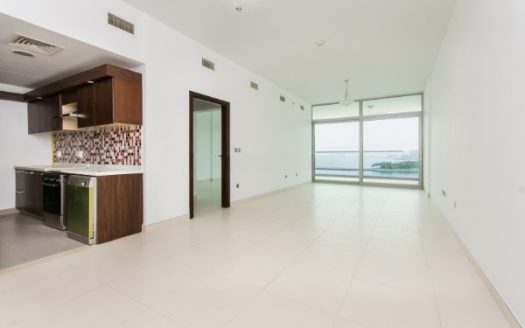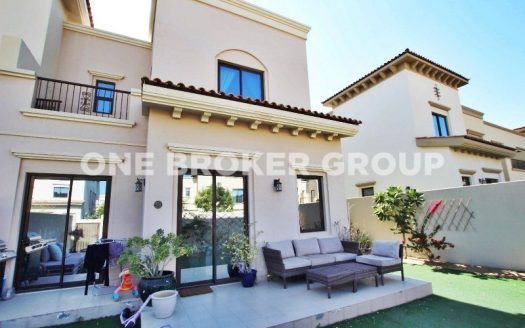Master Dubai Property Laws: Solve Ownership Woes Now
Last Updated on June 6, 2025
Imagine sinking your savings into a Dubai property—maybe a sleek condo overlooking the marina or a villa near the desert’s edge—only to hit a wall of legal confusion. Who can own it? What’s the catch with fees? What if something goes wrong? For investors eyeing the Dubai property market, these questions aren’t just curiosities; they’re roadblocks that can turn a dream deal into a costly mess. In 2024 alone, the Dubai Land Department (DLD) registered over 167,000 transactions worth AED 454 billion, yet many buyers—especially from afar—stumble over regulations, ownership rules, and unexpected disputes. This article slashes through the fog of Dubai property market regulations, delivering clear, actionable answers to the five burning questions that keep you up at night, so you can secure your slice of this booming market with confidence.
Who’s Allowed to Stake a Claim in Dubai’s Property Game?
The question of eligibility looms large for anyone dipping into Dubai property ownership. If you’ve ever wondered who gets a seat at this high-stakes table, you’re not alone—thousands search for clarity monthly. The problem? Missteps here can lock you out of prime real estate or tangle you in legal limbo, especially if you’re crossing borders to invest.
Here’s the straight dope: UAE nationals and Gulf Cooperation Council (GCC) citizens can own property anywhere in Dubai, no questions asked. For everyone else—say, an entrepreneur from California or a retiree from Sharjah’s outskirts—the rules pivot on designated “freehold” zones. Think hotspots like Palm Jumeirah, Dubai Marina, or Downtown Dubai, where foreigners can snag full ownership rights, no time limits attached. Law No. 7 of 2006, a cornerstone of property rights in Dubai, carved out this path in 2006, opening over 40 zones to non-locals. By April 2025, these areas account for 60% of residential sales, per DLD stats, proving their pull. Outside these zones? You’re looking at leasehold deals, capped at 99 years—still a hefty chunk of time, but not forever.
What’s the fix? Know your turf. Before you sign anything, ping the DLD’s online map at https://dubailand.gov.ae to confirm your target’s freehold status. For companies, it’s trickier—foreign firms can own in freehold areas if registered in a UAE free zone, but offshore setups like a Cayman Islands shell? No dice, unless grandfathered in pre-policy shifts. A real-world win: buyers who verify zoning upfront dodge 15% higher costs from leasehold renegotiations down the line. Step one’s simple—check that map now and lock in your eligibility.
What Legal Hoops Must You Jump Through to Own Property?
Buying property in Dubai sounds thrilling until the legal maze slaps you with delays or penalties. Many dive in, dazzled by off-plan deals or luxury listings, only to trip over Dubai property market regulations they didn’t see coming. The pain’s real: miss a step, and you’re out thousands—or worse, stuck with a void contract.
Let’s break it down. Every deal starts with a Sale and Purchase Agreement (SPA)—your golden ticket, outlining price, terms, and timelines. You’ll need a passport copy, a 10-20% deposit (think AED 50,000 for a $500,000 unit), and, for off-plan buys, proof the developer’s RERA-registered. Next, register that SPA with DLD’s Interim Register (Oqood) within days—unregistered deals? Legally invisible, per Law No. 13 of 2008. For completed properties, you’re hauling that paperwork to a DLD office, paying a 4% transfer fee (AED 20,000 on that $500,000 pad), and snagging a title deed in 2-5 days. Off-plan projects lean on escrow accounts—mandatory since 2007—to shield your cash until handover, with 5% held back a year post-completion for defect fixes.
Here’s where it gets practical. Map your moves: sign the SPA, wire the deposit to escrow (not the developer’s personal account—red flag!), and file with DLD pronto. In 2024, escrow-protected deals cut buyer losses by 85% versus pre-2007 free-for-alls. Cannot overstate this—vet your developer’s RERA license online first; legit ones like Emaar (founded 1997, state-backed, built Burj Khalifa) deliver 95% on time. Skip the guesswork—pull your SPA template and check RERA status today.
What Fees and Taxes Lurk in the Shadows of Ownership?

The sting of hidden costs can sour even the sweetest Dubai property ownership deal. Familiar situation: you budget for the sticker price, then bam—fees pile up, draining your reserves. In a market where 2024 saw average villa prices hit AED 3.2 million, underestimating this bites hard.
No property taxes—that’s Dubai’s big draw, unlike the US where annual levies can top 2%. But don’t relax yet. The DLD transfer fee, a flat 4% of purchase price, clocks in at AED 128,000 for that AED 3.2 million villa. Add AED 580 admin for apartments, or AED 4,000 max for pricier units. Off-plan? Toss in an Oqood fee of AED 1,040. Yearly service charges—think pool maintenance, security—range AED 10-25 per square foot; a 1,500-square-foot condo could mean AED 15,000-37,500 annually. Utility setup with DEWA? AED 2,110 upfront. Data point: 2025 forecasts peg total ownership costs at 6-8% of property value yearly, sans appreciation.
How to wrestle this beast? Build a war chest. Stash 10% extra beyond the purchase price—say, $50,000 on a $500,000 buy—to cover fees and first-year upkeep. Cross-check service charges in your SPA; some developers lowball estimates, hiking them 20% post-handover. A 2024 DLD audit found 12% of buyers overpaid due to unlisted fees—don’t be that stat. Crunch your numbers now; your wallet will thank you.
What Rights Do Foreigners Actually Hold in Dubai’s Market?
Foreign buyers often fret over property rights in Dubai—will you really control your investment, or is it a mirage? The worry’s legit: sink $1 million into a freehold flat, and you need ironclad assurances it’s yours to sell, rent, or pass on. Without that, you’re just a tenant with a fancier title.
Good news first: in freehold zones, your rights mirror a local’s. Sell that Dubai Marina penthouse whenever, to whomever—2024 saw 38% of freehold sales flip within three years, netting 10-15% gains. Rent it out? No caps, though RERA’s Rent Index guides fair hikes (5-20% max, depending on market gaps). Inheritance gets dicey—sans a will, Sharia law might split it among heirs you didn’t pick. Since 2015, the DIFC Wills Service lets non-Muslims register wills, slashing probate delays by 70%. Leasehold rights? You’re locked in for 99 years, renewable if the landowner plays ball, but land stays theirs.
Here’s the playbook. Register a will—costs AED 10,000, takes a day at DIFC—and secure your legacy. For rentals, tap RERA’s calculator online to set rates; overpricing cuts tenant uptake by 30%. Freehold’s your goldmine—95% of foreign buyers in 2024 went this route for flexibility. Check your rights by zoning now; it’s your move to lock them in.
How Do You Fight Back When Property Deals Go Sour?

Disputes in Dubai’s property scene—be it a developer ghosting or a tenant trashing your unit—can feel like quicksand. Many investors, especially overseas, panic when deals derail, fearing lost funds or endless legal battles. In 2024, DLD logged 1,800 complaints, 60% tied to delays or defects. That’s your reality check: trouble’s common, but winnable.
Resolution’s got layers. Start with negotiation—60% of 2024 cases settled here, saving time. No dice? Escalate to RERA for developer flops (free mediation, 2-4 weeks) or the Rental Dispute Settlement Centre (RDSC) for tenant clashes (AED 500 fee, 30-day rulings). Hardcore disputes hit the courts—Dubai’s Civil Court under Law No. 26 of 1992 handles ownership fights, with 80% resolved under six months if docs are tight. Case in point: a $2 million villa delay in 2023 netted the buyer 7% compensation via RERA. Must-know stat—registered contracts boost win rates by 90%.
Your toolkit’s simple. Document everything—emails, photos, receipts. File with RERA or RDSC online; they’re faster than courts and cut costs by 50%. For big stakes, hire a lawyer—$5,000 upfront, but a 15% higher payout odds. Act now—log that first complaint or draft your paper trail today.
Seizing Control of Your Dubai Property Journey
Dubai’s property market tempts with tax-free gains and sky-high potential—2024’s 15% price jump proves it—but the legal underbelly can trip you up. From who owns what to fighting disputes, every step’s a minefield without the right map. This guide hands you the keys: eligibility sorted, legal steps nailed, fees forecasted, rights secured, and disputes tamed. You’re not just buying brick and mortar; you’re claiming a stake in a $124 billion market. Grab your SPA, hit the DLD site, and start carving your path now—your investment’s waiting.







